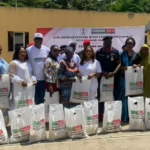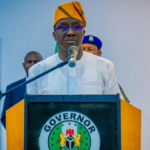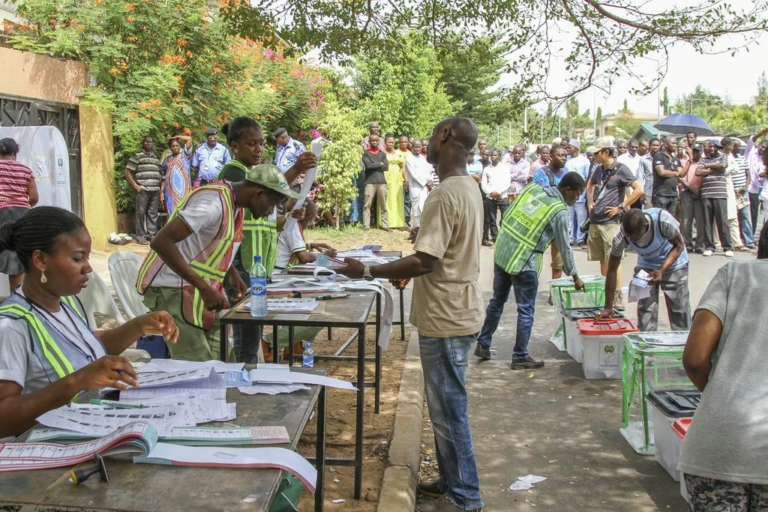The Independent National Electoral Commission (INEC) has initiated a nationwide Continuous Voter Registration (CVR) exercise aimed at expanding the voter database across Nigeria.
The commission launched its online pre-registration platform on August 18, 2025, which is set to remain active for a full year, followed by the commencement of physical registration centers on August 25.
Within just seven days, over 1.37 million Nigerians had completed the online pre-registration process. Osun State led the count with 393,269 registrants, trailed by Lagos State with 222,205, and the Federal Capital Territory (FCT) with 107,682 prospective voters.
Analyzing the gender distribution, 661,846 registrants (47.96%) were male, while females accounted for 717,856 (52.04%).
The youth demographic, particularly those aged 18 to 34, dominated the registration figures with 860,286 individuals (62.37%). Students made up 374,534 (27.15%), and persons living with disabilities represented 27,089 (1.96%) of the total.
Recognizing the pivotal role voter registration plays in safeguarding electoral integrity, INEC has urged all eligible citizens to seize this opportunity to participate actively in forthcoming elections.
Nonetheless, the registration statistics have sparked widespread debate and skepticism nationwide. Various opposition groups and civil society organizations have criticized the numbers, alleging they may be manipulated to influence the 2027 elections unfairly.
These critics warn that such discrepancies cast doubt on the transparency, reliability, and effectiveness of the registration process, raising serious concerns about the credibility of the electoral system.
Since Nigeria’s return to democracy 26 years ago, the electoral landscape has been marred by recurrent issues such as ballot tampering, voter intimidation, underage voting, vote buying, and falsification of results-practices that have often subverted the will of the people.
These persistent challenges have allowed unrepresentative leaders to ascend to power, undermining democratic governance.
Following the 2023 general elections, INEC Chairman Prof. Mahmoud Yakubu acknowledged the commission’s limited capacity to prosecute election-related offenses and perpetrators of electoral violence.
Recently, although INEC stated there are no formal penalties for premature campaign activities, it expressed concern that early political campaigns hinder its ability to monitor campaign finance regulations effectively.
We advocate strongly for the creation of an independent Electoral Offences Commission to relieve INEC of prosecutorial responsibilities. This recommendation aligns with the 2007 Electoral Reform Committee, led by former Chief Justice Mohammed Uwais, which proposed establishing a dedicated body to handle electoral violations.
The United Nations emphasizes that democracy thrives on freedoms, respect for human rights, and the conduct of periodic, genuine elections through universal suffrage. Such elections empower citizens to choose their leaders freely, fostering an environment conducive to human rights protection and fulfillment.
In light of this, calls to amend the 2022 Electoral Act have intensified. Among the proposed reforms is INEC’s push for a single-day voting system, which promises to boost electoral efficiency, cut operational expenses, and harmonize governance timelines nationwide.
Equally critical is the modernization of election result transmission. South Africa’s successful implementation of real-time online result reporting serves as a model, underscoring the urgent need for Nigeria to eliminate collation centers-known hotspots for result manipulation.
With less than eighteen months remaining before the 2027 general elections, substantial reforms and preparations are imperative before campaigns officially commence late next year.
As the saying goes, repeating the same actions and expecting different outcomes is folly. Persisting with flawed electoral practices will only perpetuate the cycle of illegitimate leadership, hindering national progress.
Election fraud has far-reaching consequences, producing leaders who often lack empathy, accountability, integrity, and vision. Such leaders tend to be dishonest, self-serving, and indecisive, impairing effective governance.
To rectify these systemic flaws, it is essential to establish a transparent and credible electoral framework that ensures the electorate’s genuine choices prevail-favoring candidates of integrity, foresight, and dedication over those who seek power through corrupt means.

















